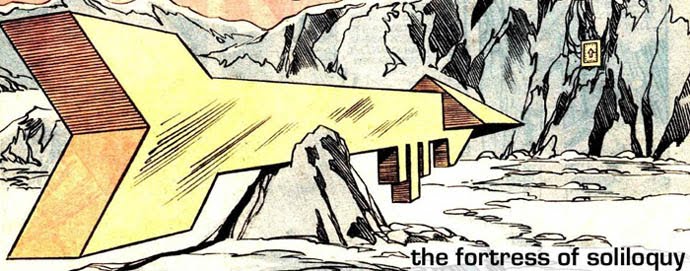I tried reading "Seaguy" again. I got from the first page to the last, for the second time, and I still have no idea what it's about. I feel like it's written in a foreign language that I haven't taken classes for in years; I can pick up a thought here or there, but it's mostly incomprehensible.
I want to like it, I really do. There's a lot of cool ideas in it, and I love Morrison and Stewart, but both of the times I've read it, I've felt utterly and completely lost. The best idea I can come up with is that Morrison is trying to provoke in the reader the confusion a new comic reader might have when picking up their first shared-universe comic, referencing plots and characters and events that you don't know about.
But even then, there's got to be more to it. I just really don't know what. I can't really follow the story, it appears to end really abruptly, and there's a tragic "The Prisoner" vibe I get from it that I can't fully appreciate because I don't understand it.
So, do you understand it, or is this an "Emperor's New Clothes" scenario, where everyone pretends to understand and love it because no one wants to look as stupid as I look right now?

1 comment:
This has a few SPOILERS so be warned. (N.B. I've only read the 1st series so appologies if something in the 2nd makes my thoughts look ridiculous)
My opinion (significantly influenced by an essay on the comic I've read online somewhere I cant remember, cbr maybe?) is that Seaguy's meant to be some sort of commentary on writing superheroes, we get the intriguing setting, the emotional middle piece followed by the disappointing end where nothing has changed(apart from a few minor details) and the villains have ultimately got away with it.
The really SPOILERY bit
Ever since the tragic end of issue two I was waiting for Seaguy to avenge Chubby or do something great in his memory or whatever, instead we get more weirdness and Seaguy forgetting the whole thing. I assume this is Morrison making a point about how the constant resetting of things to the status-quo at the end of a writers run on a corporate owned superhero comic de-values the work and the pointlessness of death in mainstream comics.
Post a Comment